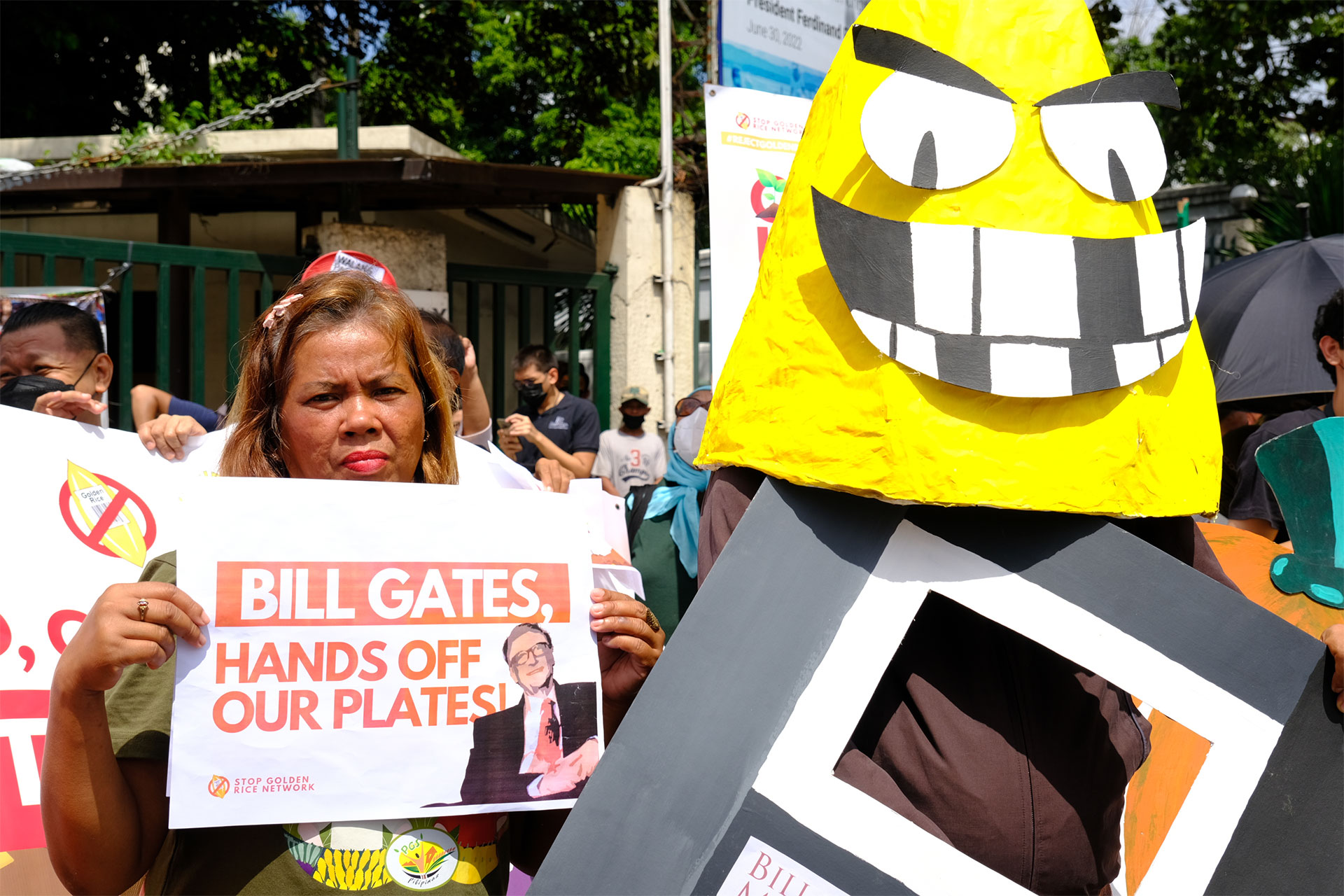Regional advocacy group PAN Asia Pacific (PANAP) lauds the Philippine Supreme Court for issuing a ‘Writ of Kalikasan’ in favor of petitioners seeking to stop the commercial propagation of genetically modified crops Golden Rice and Bt eggplant in the country.
“This development brings hope to farmers, scientists, consumers and civil society groups not just in the Philippines, but in other countries where GM crops are being opposed because of its threats to biodiversity, people’s health, and farmers’ livelihoods. All eyes are on the Philippines because Golden Rice is the first genetically modified staple food to be commercialised, and will pave the way for the entry of even more hazardous GM crops into markets and into our diets,” said Arnold Padilla, coordinator of PANAP’s Food Sovereignty Programme. PANAP is a co-convenor of the Stop Golden Rice Network (SGRN) Asia, a network of more than 30 organisations across the Asia Pacific region.
Led by MASIPAG (Farmer-Scientist Partnership for Development), various groups filed a petition for a ‘Writ of Kalikasan,’ with prayer for the issuance of Temporary Environmental Protection Order (TEPO) last October 17, 2022. The TEPO aims to direct the proponents of Golden Rice and Bt Eggplant to refrain from commercially propagating Golden Rice and issuing biosafety permits for commercial propagation of Bt Eggplant, cease and desist from commercially propagating Golden Rice and Bt Eggplant, declare all biosafety permits for Golden Rice and Bt Eggplant null and void, perform independent risks and impact assessments, and obtain the prior and informed consent of farmers and indigenous peoples.
Last April 18, 2023, the Supreme Court issued the ‘Writ of Kalikasan’ and directed the proponents of Golden Rice and Bt eggplant–the Philippine Department of Agriculture and its Bureau of Plant Industry, Department of Environment and Natural Resources, Department of Health, the Philippine Rice Research Institute, and University of the Philippines – Los Baños–to respond to the petition.
The ‘Writ of Kalikasan’ is a legal remedy protecting the Filipino people’s rights to a healthy environment, under which several forms of relief “which relate to the right of the people to a balanced and healthful ecology or to the protection, preservation, rehabilitation or restoration of the environment” may be granted.
“Golden Rice threatens the thousands of rice varieties in Asia with extinction. In the Philippines, this includes nutritious traditional heirloom and organic farmer-bred rice varieties. With its questionable biosafety and Vitamin A content, and many locally abundant and natural sources of Vitamin A, it is easy to see how Golden Rice is primarily not about addressing malnutrition, but expanding corporate control over food and agriculture,” Padilla added.
While currently being distributed under “humanitarian use,” Golden Rice is patented under Syngenta, one of the world’s largest pesticide and seed transnational corporations.
PANAP further expressed alarm at reports by MASIPAG that children in the provinces of Isabela (Luzon) and Samar (Visayas) have already been fed Golden Rice porridge. There are currently 17 pioneer production sites of Golden Rice in different provinces across the Philippines.
“Filipino children are not guinea pigs. We hope that the Supreme Court will grant the Temporary Protection Order as soon as possible to avert health risks to the population and prevent local rice contamination,” Padilla concluded. ###
Reference: Arnold Padilla, Food Sovereignty Programme Coordinator, nolandnolife@panap.net








Discussion about this post